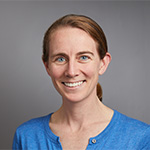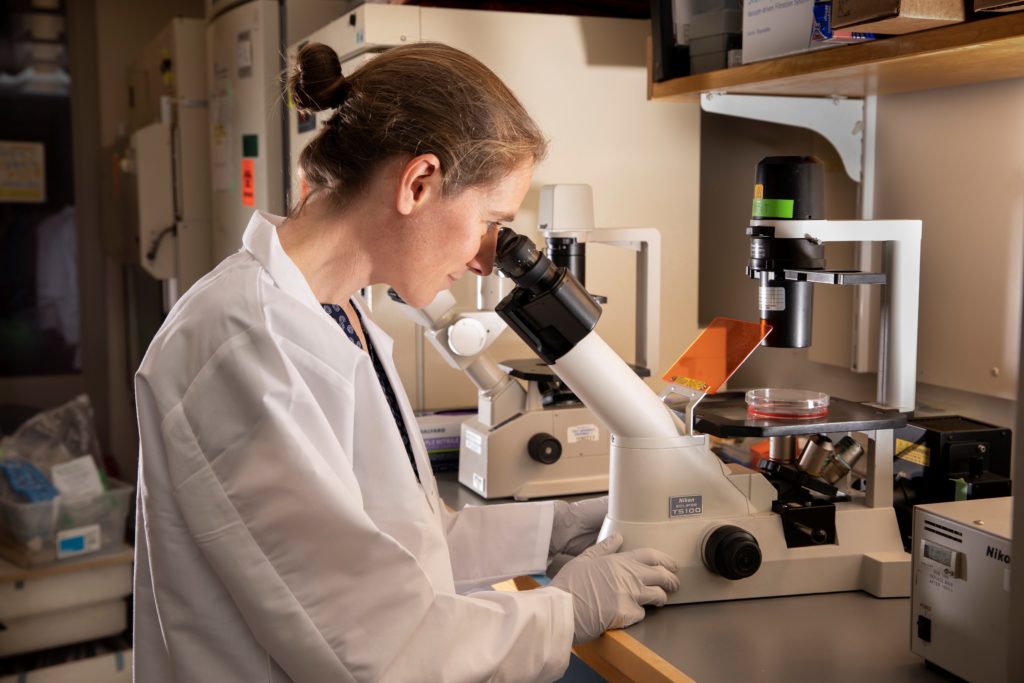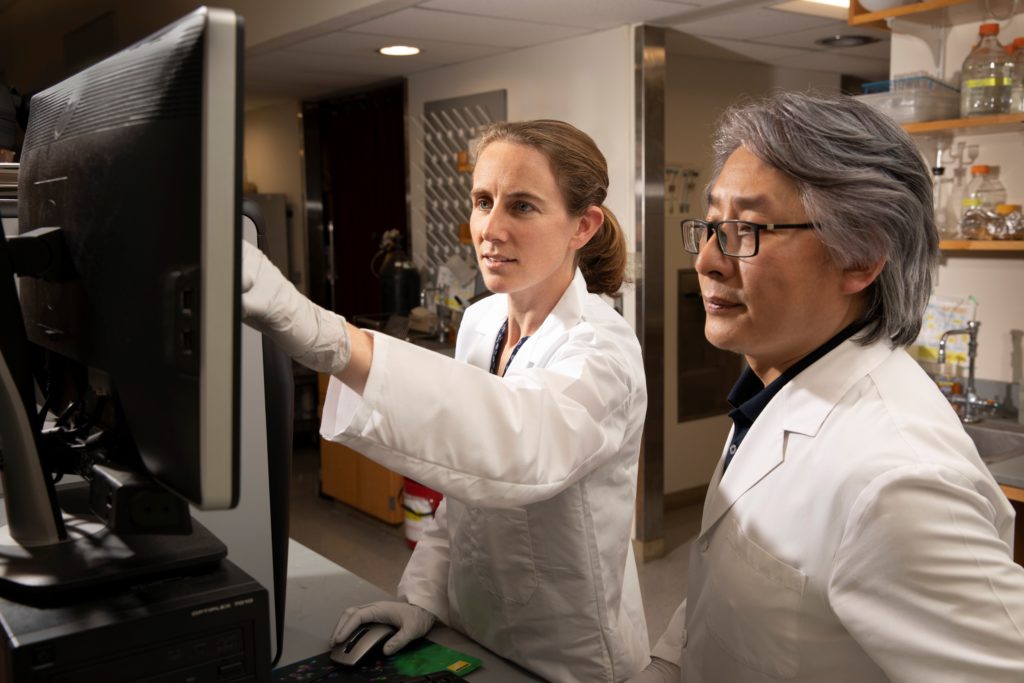
Researcher: Whitney Besse, M.D. | Yale University
PKD Foundation (PKDF): How did you first get involved in PKD research?
Whitney: During my clinical Nephrology fellowship, I chose to work with research mentor Stefan Somlo who studies PKD and had an exciting cohort of patients for me to study. I made this choice for three main reasons: Dr. Somlo’s mentoring, my interest in genetic diseases/genetic investigation, and for the therapeutic need I saw when caring for patients with PKD during my clinical training.


PKDF: What would you like the patient community to know about your research?
Whitney: Some of the genes we study encode proteins that help other more complex proteins to mature and travel to where they need to be in the cell. We are considering whether optimizing these could be helpful for certain patient mutations that don’t mature/function well.
We continue to enroll patients with isolated polycystic liver disease or ADPKD if no mutation has been detected in PKD1 or PKD2. We do whole exome sequencing, and when no pathogenic mutation is found in established genes, we work to define new genes by detecting commonalities amongst those with cysts compared with controls.
PKDF: What are you working on currently?
Whitney: We are currently working on characterizing the interactions and consequences of the proteins identified to be of relevance from our gene discovery studies. We are testing the effect of increasing chaperones in cell culture models.
As well, we are studying mice in whom we can genetically induce autosomal recessive PKD (ARPKD) mutations in adulthood to study the role of the ARPKD protein in cyst formation independent of its role during kidney and liver development. We presented this work at the American Society of Nephrology conference ~8 months ago and are working to pursue these findings further.
PKDF: Do you have a personal connection to PKD?
Whitney: I am fortunate in that no one in my family has PKD, however, during my clinical training and clinical practice as a Nephrologist I have taken care of many patients with PKD. Several patients and their families have made lasting impressions on me.
PKDF: What excites you most about this research?
Whitney: I am excited to learn more about how to help the ADPKD proteins mature correctly, as I would love if this knowledge could contribute directly to treatments for some patients. I am also very excited about our gene discovery approach as this has the potential to help direct research attention in an unbiased way to new pathways of relevance that may be amenable to therapeutic interventions.
PKDF: What are some of your personal interests outside of research?
Whitney: I love being active outdoors. In college I was successful in competitive sailing, and I’ve continued that passion by doing some local races in the summertime. I also enjoy running and biking. I have two young boys that keep me very busy, and now we enjoy trying to teach them our hobbies.
PKDF: Anything else you’d like to share?
Whitney: The PKD Foundation has had an incredible impact on my career. The PKD Foundation fellowships really help to draw and retain PKD researchers by providing funds that not only fund the research itself, but in so doing make the researchers competitive to get the NIH grant funds for their PKD-related projects as well. I am very grateful to the Foundation and its supporters and continue to be inspired by the unity and determination this group has.
Check out Dr. Besse’s grant and others funded by PKDF here!
The PKD Foundation is the largest private funder of PKD research in the U.S. Since 1982, we’ve invested close to $50 million in more than 700 research, clinical and scientific grants, fellowships and scientific meetings. Each year, The Foundation identifies and supports the work of scientists and researcher from around the world who look for ways to treat and eventually cure PKD.
Our vision is to end PKD. Donations help fund necessary research that leads to more effective treatments and ultimately a cure for PKD.









Thank you for your work on behalf of PKD patients!